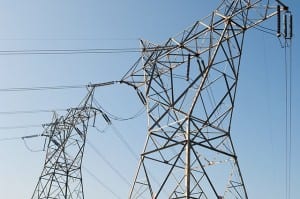Australian and Japanese environment and research groups have issued a joint call to the Japanese government to end Australian imports of coal.
The group of non-government organisations have produced a new assessment of the environmental impacts of the coal that Australia supplies to Japan which argues the ongoing purchase of Australian coal is unsustainable.
Japan is Australia’s largest buyer of coal, used for both power generation and manufacturing industries, and Australia supplies around 60 per cent of Japan’s total coal consumption.
The research report found that the coal exported by Australia to Japan is responsible for around 490 million tonnes of greenhouse gas emissions, which is almost the equivalent to Australia’s domestic greenhouse gas emissions.
“Australia is the third largest exporter of fossil fuels in the world, yet the government is only interested in further growing its coal and gas exports to the region,” the Australia Institute’s Richie Merzian said.
“As a result, Japan and Australia both suffer more climate damage. The emissions in Japan from burning Australian coal are roughly equivalent to all the climate pollution emitted in Australia every year.”
The publication of the research is an unusual step to pressure one of Australia’s major trading partners and is designed to provide information to Japanese decision-makers on whether to support the continued use of Australian coal.
The assessment noted that several of Australia’s largest coal mine developments are co-owned by major Japanese corporations, often projects that are encroaching on sensitive environmental sites.
“As well as buying Australian coal, Japanese companies also own stakes in many coal mines in Australia, including some of the most controversial mines in the country. Many of these Japanese companies are well-known, including Mitsui, Mitsubishi, J-Power, Itochu, Idemitsu and others,” the report says.
“Some of these companies are not looking to move away from coal, but are actually searching for new ways to use more coal,” the report says.
“Despite claims to the contrary, these “new” uses — such as creating hydrogen and other gasses and fuels — produce huge amounts of greenhouse gas pollution, with proposed carbon capture and storage technologies (CCS) still years away from completion.”
Japanese environment group Kiko Network collaborated on the assessment, saying that the results highlighted the severe impact that Japan’s demand for Australian coal was having on the Australian and global environment.
“Japan relies heavily on coal, but people in Japan barely know the impacts incurred in Australia due to our consumption of coal. We need to end the utilisation of coal power by 2030 – not only for the climate, but also for nature and the people of Australia,” Kiko Network’s Kimiko Hirata said.
Of particular concern were the biodiversity impacts of Australia’s coal industry.
“This report brings to light the true costs of Australia’s coal trade with Japan – on koala habitats, water resources, human health, rural communities and First Nations’ rights,” the Australian Conservation Foundation’s Gavan McFadzean said.
Japan has committed to reducing its consumption of coal, adopting a target for carbon neutrality by 2050, as well as a 2030 target to reduce emissions by at least 46 per cent of 2013 levels.
Analysts have suggested the more ambitious targets adopted by the Japanese government would effectively rule out any expansion of Japanese coal consumption.
Japan’s largest power generator, JERA, announced last year that it would look to close its inefficient coal power stations, replacing them with renewable energy projects.
Through the new report, the environmental and research groups have issued a joint call for both Australia and Japan to phase out the trade of coal between the two countries by 2030.
“To address climate change, protect Australian biodiversity and water resources, and improve air quality and human health in Japan and Australia, Australian coal exports and Japanese coal consumption need to be phased out,” the report says.
“Japan Beyond Coal’s goal of phasing out coal power by 2030 is not only inevitable for Japan’s sustainable energy transition and climate protection, but also for Australia’s clean and safe future. Numerous research programs have shown that this can be achieved without major disruption to economies or energy systems.”







